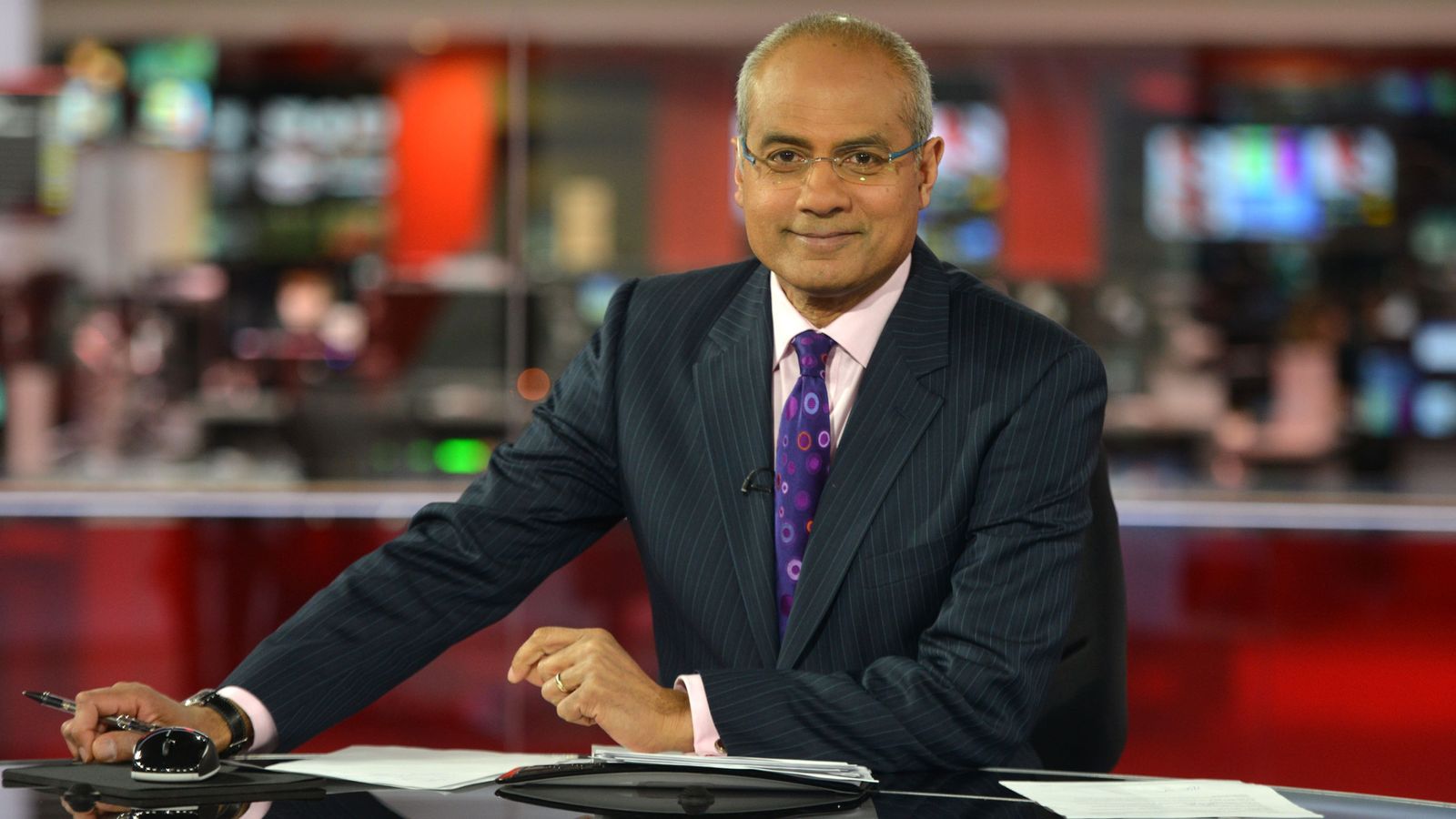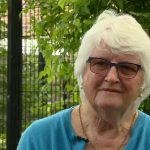Newsreader George Alagiah said he is “determined to come back” as his agent confirmed the presenter is dealing with a “further spread of cancer” and is to take a break from broadcasting.
The TV journalist, 65, was diagnosed with bowel cancer in April 2014 and again in December 2017. In 2020, he also contracted COVID-19 but said living with cancer had helped him get through it.
Alagiah had been back on television on the BBC News At Six programme following his previous treatment, after taking time off air.
Now, his agent has said in a statement that he “is to take a break from studio duties to deal with a further spread of cancer” and will undergo chemotherapy and radiotherapy.
She said: “He was first diagnosed with stage 4 bowel cancer in April 2014. In a letter to colleagues in the newsroom Mr Alagiah said his medical team had decided to hit the new tumour ‘hard and fast’.
“He is due to undergo a combination of chemotherapy and radiotherapy over the next few months.
“He added that working on the programme ‘has kept me sane over the last few years’ and ‘I’m determined to come back’.”
Casualty producers announce that show will get its first transgender character in a continuing role
TV presenter Jeremy Stansfield awarded £1.6m in damages after he was hurt during filming of BBC show
BBC ‘losing talent’ such as Phoebe Waller-Bridge in ‘red hot’ battle with rivals, top boss warns
Alagiah, a British journalist who was born in Sri Lanka, underwent 17 rounds of chemotherapy to treat his advanced bowel cancer in 2014.
He returned to presenting duties in 2015 and said he was a “richer person” following his diagnosis. However, the cancer returned in December 2017 and the presenter underwent further treatment before once again returning to work.
He then had to take time off again as the pandemic hit in 2020, but went on to contract COVID-19.
Speaking about his coronavirus diagnosis to BBC News At Six’s Sophie Raworth, he said: “I don’t want to trivialise because I seem to have had a mild dose, but actually, the very fact that we (cancer patients) are living with cancer I think gives us an edge.
“We’ve confronted those difficult, dark moments in our life. And in some ways, I think that we, those of us living with cancer, are stronger because we kind of know what it is like to go into something where the outcomes are uncertain.
“And I certainly feel that having had that experience, in my case six years as a cancer patient, I went into this feeling actually quite strong, if I can live with cancer, I can certainly live with COVID-19.”






















